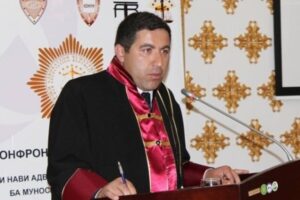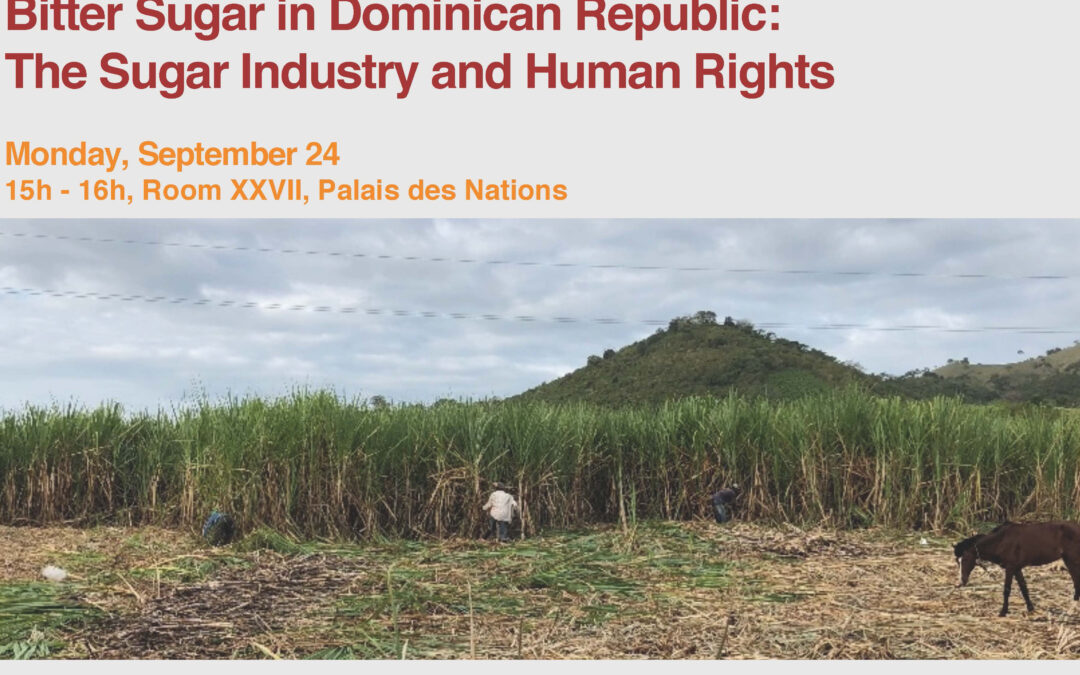
Sep 19, 2018 | Eventos, Noticias
La CIJ acogerá el evento paralelo, “Azúcar amargo en la República Dominicana: la industria azucarera y los derechos humanos” el lunes, 24 septiembre 2018 de 15:00-16:00 habitación XXVII, en el Palais de Nations en Ginebra.
Junto con el turismo, la producción de azúcar es una de las principales industrias y una de las mayores fuentes de empleo en la República Dominicana.
Este pequeño estado caribeño sigue siendo uno de los principales proveedores mundiales de azúcar en los Estados Unidos.
Si bien la producción y exportación de azúcar en la República Dominicana son unas fuentes importantes de ingresos para el país, los impactos adversos de su producción son varios.
La destrucción del medio ambiente, el acceso reducido a la tierra para las comunidades locales, los desalojos forzosos y las condiciones laborales precarias en las plantaciones de caña de azúcar son lamentablemente una realidad en muchas regiones del estado caribeño.
Mientras que la República Dominicana ha demostrado en los últimos años estar preparada para cumplir y aplicar las normas internacionales sobre asuntos relacionados con las empresas y los derechos humanos, el país sigue enfrentando muchos desafíos y las evidencias de violaciones de derechos humanos proviniendo del terreno todavía pintan una realidad complicada.
Dos ejemplos recientes involucrando la industria de la caña de azúcar ilustran la preocupación constante por los abusos contra los derechos humanos en la República Dominicana.
En 2016, agentes armados de uno de los mayores productores de azúcar del país, Central Romana Corp., expulsaron por la fuerza de sus hogares a más de 60 familias durante la noche.
No se han proporcionado alojamiento alternativo o reparaciones a las víctimas para reparar la destrucción de sus hogares y el trauma causado por la violencia de los desalojos.
En 2017, el Grupo Vicini, la segunda principal empresa productora de azúcar del país, utilizó el pesticida glifosato de tal manera que muchas personas corrieron peligro de muerte y que destruyó los cultivos y el ganado de los campesinos. Hasta la fecha, las violaciones de los derechos humanos en ambos casos siguen impunes.
Existe una creciente preocupación internacional de que la industria de la caña de azúcar en la República Dominicana puede de alguna manera actuar con impunidad cuando se trata de violaciones de derechos humanos.
Teniendo en cuenta el próximo Examen Periódico Universal de la República Dominicana, en el cual todos los Estados Miembros de la ONU examinarán la situación de los derechos humanos en el país, este evento paralelo tiene como objetivo informar y arrojar luz sobre esta realidad poco conocida en la República Dominicana e informar a las delegaciones estatales sobre la importancia de abordar este tema en su revisión de la República Dominicana.
El evento también proporcionará un espacio para el diálogo constructivo entre varios actores, incluido el Gobierno de la República Dominicana.
Panelistas:
– Un experto sobre el tema de las empresas y los derechos humanos (Carlos Lopez, Comisión Internacional de Juristas)
– Un experto sobre el tema de la industria azucarera en la República Dominicana y sus impactos sobre los derechos humanos (Fr. Damián Calvo Martin OP, Centro de Teología Santo Domingo de Guzman)
– Una víctima de desalojos forzosos por parte de Central Romana Corp. (María Magdalena Álvarez Gálvez)
Moderador: Rory Gogarty, High Court of England and Wales
Interpretación: se proporcionará de inglés a español y de español a inglés
República Dominicana evento 24 septiembre (volante de evento en PDF)
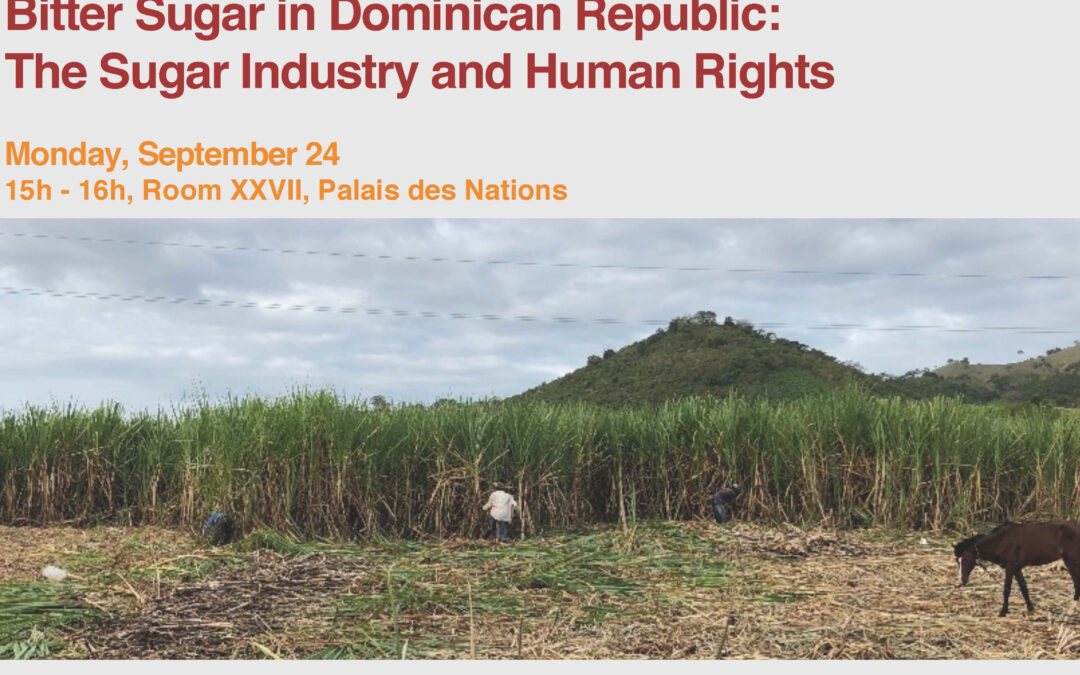
Sep 19, 2018 | Events, News
The ICJ will host the side event, “Bitter Sugar in Dominican Republic: The Sugar Industry and Human Rights” on Monday, 24 September 2018 from 15:00-16:00, Room XXVII, at the Palais de Nations in Geneva.
Together with tourism, sugar production is one of the major industries and one of the biggest sources of employment in the Dominican Republic.
This small Caribbean State remains one of the world’s top sugar suppliers to the USA.
While sugar production and export in the Dominican Republic is a major source of income for the country, the adverse impacts of its production are various.
Destruction of the environment, reduced access to land for local communities, forced evictions and precarious working conditions in sugarcane plantations are unfortunately a reality in many regions of this Caribbean State.
Whilst the Dominican Republic has shown in past years a preparedness to abide by and implement international standards on matters related to business and human rights, the country continues to face many challenges and evidence of human rights violations on the ground still portrays a complicated reality.
Two recent examples involving the sugar cane industry illustrate ongoing concern about human rights abuses in the Dominican Republic.
In 2016, armed agents of one of the largest sugar producers in the country, Central Romana Corporation, forcibly evicted from their homes more than 60 families during the night.
No alternative accommodation or reparations have been provided to the victims to redress the destruction of their homes and the trauma caused by the violence of the evictions.
In 2017, the Vicini Group, the second main sugar producing company in the country, used the pesticide Glyphosate in such a way that many were in danger of death and that it destroyed the crops of peasant farmers and workers.
To date, the human rights violations in both cases continue to be unpunished.
There is a growing international concern that the sugar cane industry in the Dominican Republic is somehow able to act with impunity when it comes to human rights violations.
Bearing in mind the upcoming Universal Periodic Review of Dominican Republic, in which all UN Member States will examine the human rights situation in the country, this side event is aimed at informing and shedding light on this little known reality in the Dominican Republic as well as to brief State delegations about the importance of addressing this issue in their review of the Dominican Republic.
The event will also provide a space for constructive dialogue among various actors, including the Government of the Dominican Republic.
Panelists:
– Carlos Lopez, Senior Legal Adviser, International Commission of Jurists
– Fr. Damián Calvo Martin OP, Director, Centro de Teología Santo Domingo de Guzman
– María Magdalena Álvarez Gálvez, victim of forced evictions by Central Romana Corp.
Moderator: Rory Gogarty, High Court of England and Wales
Interpretation: Will be provided from English to Spanish and Spanish to English
Dominican Republic Sugar Industry Side Event Flyer 24 Sept. (flyer of the event in pdf)
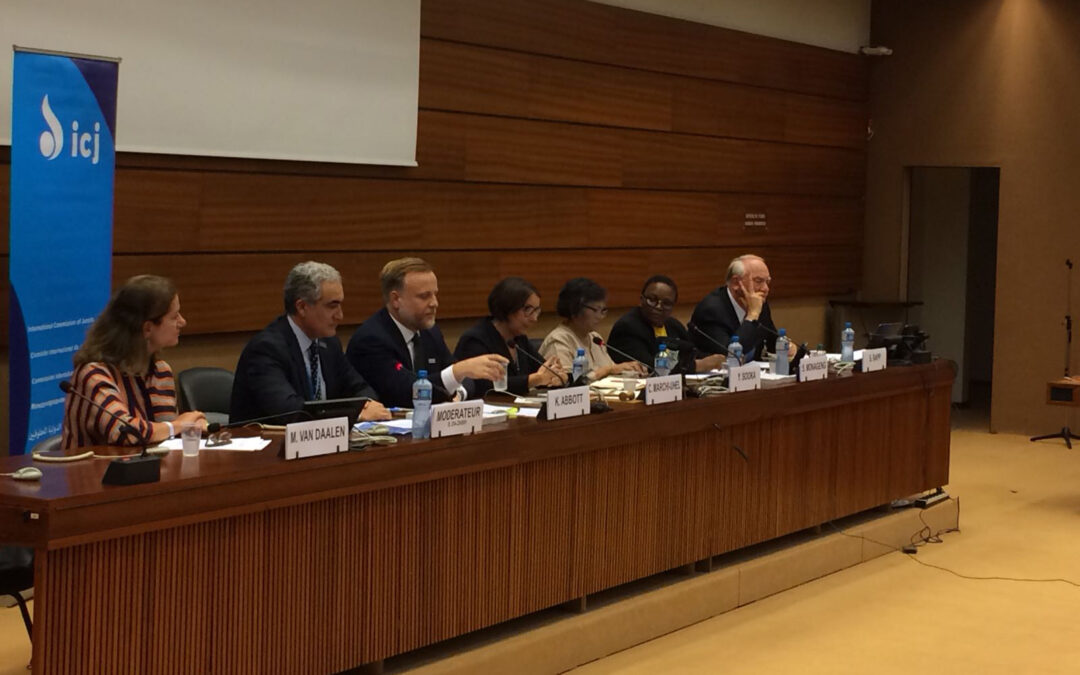
Sep 18, 2018 | Événements, Multimédia, Nouvelles
La CIJ a organisé cet événement parallèle aujourd’hui (mardi 18 septembre 2018) au Conseil des droits de l’Homme, en coopération avec la Mission permanente des Pays-Bas.
https://www.facebook.com/ridhglobal/videos/1005764152964172/
Contexte
En particulier lorsque des crimes de droit international sont perpétrés à grande échelle dans des situations de crise, il est urgent de préserver les preuves pouvant être utilisées lors de procédures pénales éventuelles, que ce soit devant la Cour pénale internationale ou d’autres tribunaux nationaux ou internationaux.
Trop fréquemment, des obstacles empêchent un recours direct aux tribunaux et procureurs internationaux. L’une des réponses a été la création de mécanismes pour collecter et conserver les preuves pendant ce temps. Les exemples incluent le Mécanisme international indépendant et impartial (IIIM) pour la Syrie et la Commission des droits de l’Homme au Sud Soudan.
À la présente session du Conseil des droits de l’Homme, la mission d’enquête sur le Myanmar a appelé à la création d’un IIIM dans l’attente d’une saisine de la CPI ou d’un tribunal ad hoc.
Discours d’ouverture
Ambassadeur Monique T.G. van Daalen, Mission permanente des Pays-Bas
Modérateur:
Saman Zia-Zarifi, Secrétaire général de la Commission internationale des juristes
Panélistes:
- Catherine Marchi-Uhel, cheffe du Mécanisme international indépendant et impartial (IIIM) pour la Syrie
- Yasmin Sooka, présidente de la Commission des droits de l’homme au Sud Soudan
- Sanji Monageng, ancienne juge / vice-présidente de la CPI et commissaire de la CIJ
- Stephen Rapp, président de la Commission pour la justice internationale et la responsabilité (CIJA), membre émérite du US Holocaust Memorial Museum, et ancien ambassadeur des États-Unis chargé pour la justice pénale mondiale
- Kingsley Abbott, conseiller juridique principal de la CIJ, anciennement aux Chambres Extraordinaires au sein des Tribunaux Cambodgiens et du Tribunal spécial pour le Liban
Universal-ICJ-NL-Side event-News-events-2018-ENG (prospectus de l’événement en PDF uniquement en anglais)
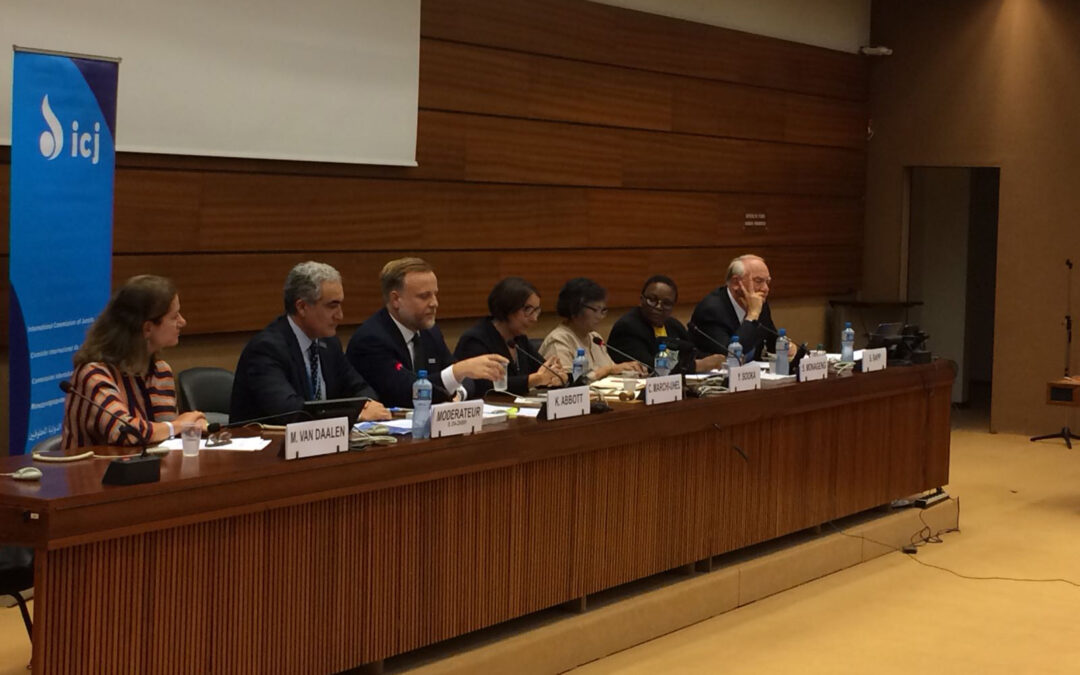
Sep 18, 2018 | Events, Multimedia items, News, Video clips
The ICJ organized this side event today (Tuesday 18 September 2018), in cooperation with the Permanent Mission of the Netherlands, at the Human Rights Council.
https://www.facebook.com/ridhglobal/videos/1005764152964172/
Background
Particularly when crimes under international law are perpetrated on a large scale in situations of crisis, there is an urgent need to preserve evidence for use in eventual criminal proceedings, whether at the International Criminal Court or other national or international tribunals
Too frequently, obstacles prevent immediate direct recourse to international courts and prosecutors. One response has been the creation of mechanisms to collect and preserve the evidence in the meantime. Examples include the International Independent and Impartial Mechanism (IIIM) for Syria, and the Commission on Human Rights in South Sudan.
At the current session of the Human Rights Council, the Fact-Finding Mission on Myanmar has called for establishment of an IIIM pending referral to the ICC or an ad hoc tribunal.
Opening Remarks:
Ambassador Monique T.G. van Daalen, Permanent Mission of the Netherlands
Moderator:
Saman Zia-Zarifi, Secretary General, International Commission of Jurists
Panelists:
- Catherine Marchi-Uhel, Head, International, Impartial and Independent Mechanism (IIIM) for Syria
- Yasmin Sooka, Chairperson, Commission on Human Rights in South Sudan
- Sanji Monageng, former Judge/Vice-President of the ICC, and Commissioner of the ICJ
- Stephen Rapp, Chair, Commission for International Justice & Accountability (CIJA), Distinguished Fellow, US Holocaust Memorial Museum, and former United States Ambassador-at-Large for Global Criminal Justice
- Kingsley Abbott, ICJ Senior Legal Adviser (Global Accountability), formerly with the Extraordinary Chambers in the Courts of Cambodia and the Special Tribunal for Lebanon
Universal-ICJ-NL-Side event-News-events-2018-ENG (flyer of the event in PDF)
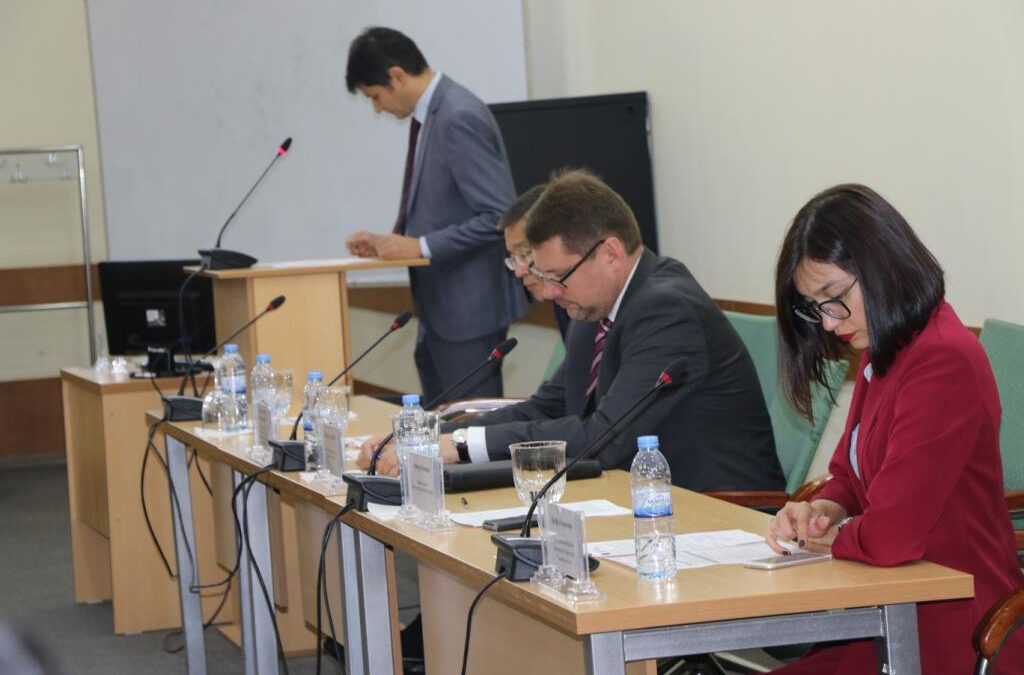
Sep 18, 2018 | Новости
Сегодня Международная комиссия юристов (МКЮ) и Ташкентский государственный юридический университет (ТГЮУ) открывают серию экспертных дискуссий по экономическим, социальным и культурным правам (ЭСК) для развития гражданского общества в продвижении ЭСК прав и стандартов в Узбекистане.
Экспертные дискуссии являются частью проекта «Доступ к правосудию в области экономических, социальных и культурных прав» (ACCESS), реализуемого при поддержке Европейского союза.
Обсуждения экспертов направлены на повышение осведомленности об имплементации международного права и стандартов в области ЭСК прав в национальных судах, также в целях обеспечения доступа к правосудию в области ЭСК прав и эффективного использования международного права прав человека в применении ЭСК прав.
Каждые два месяца дискуссии будут объединять юристов, адвокатов, специалистов, ученых и студентов-юристов посредством интерактивных обсуждений, исследовательских работ, обзорных статей и аналитических записок. Отдельные статьи будут опубликованы к концу 2019 года.
«Сотрудничество нашего университета с Международной комиссией юристов (МКЮ) при поддержке Европейского Союза намечает значимые перспективы для всех. Ташкентский государственный юридический университет (ТГЮУ) рад началу сотрудничества с Международной комиссией юристов (МКЮ). Данное сотрудничество будет иметь значение в дальнейшем повышении уровня информированности общественности о реализации международно-правовых норм и стандартов в области экономических, социальных и культурных прав в национальных и международных юрисдикциях, доступе к правосудию с точки зрения экономических, социальных и культурных прав, а также эффективном использовании международного права в области прав человека для защиты этих прав», отметил Эсемурат Каниязов, Ректор ТГЮУ и заместитель министра юстиции Республики Узбекистан. Также он дополнил, «таким образом, планируемое сотрудничество будет также способствовать дальнейшему прогрессу в области проведения исследований нормативно-правовой базы Узбекистана в сфере экономических, социальных и культурных прав и соблюдения требований международного права в области прав человека.»
«Эти дискуссии по экономическим, социальным и культурным правам в качестве подлежащих защите прав в свете международного права прав человека имеют решающее значение для понимания юридического характера ЭСК прав и способности отдельных лиц иметь доступ к правосудию при их защите», – сказал Тимур Шакиров, старший советник по правовым вопросам МКЮ. «Экономические, социальные и культурные права, включая право на труд и справедливые условия труда, социальное обеспечение, семейную жизнь и доступ к жилью, продовольствию, воде, здравоохранению и образованию, и другим правам человека, могут и должны быть гарантированы, как это закреплено в Международном пакте об экономических, социальных и культурных правах, участником которого является Узбекистан. МКЮ рада осуществлению данной инициативы, которую мы начинаем совместно с ТГЮУ», – добавил он.
Для более подробной информацией, просим обращаться:
Дильфуза Куролова, Консультант по правовым вопросам Международная комиссия юристов (МКЮ), Т: +998 90 9050099 ; E: dilfuza.kurolova(a)icj.org








